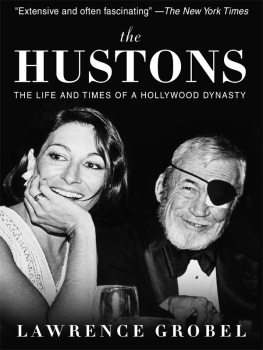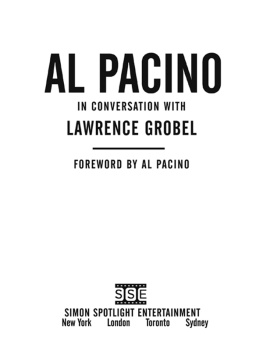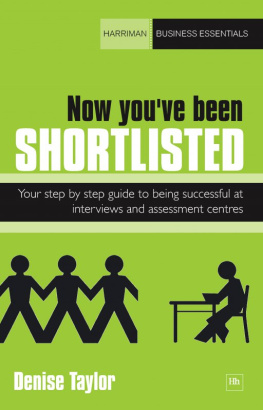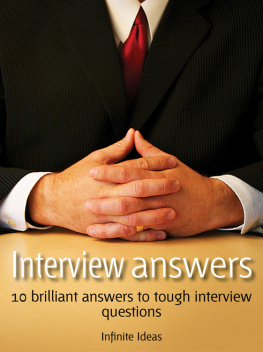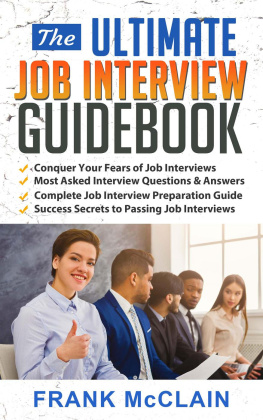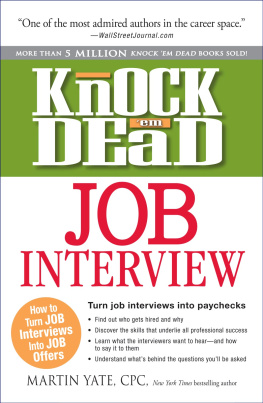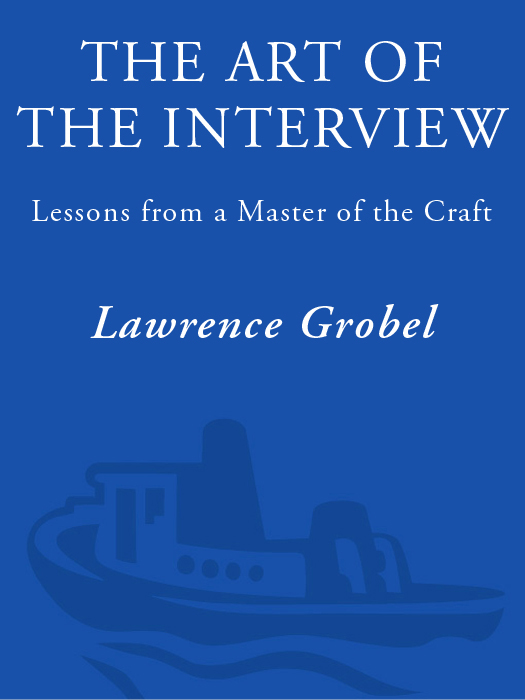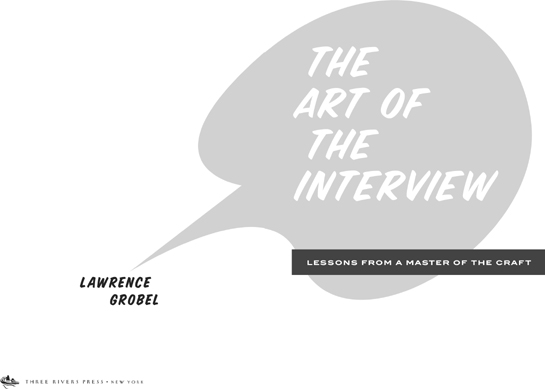Lawrence Grobel - The Art of the Interview: Lessons from a Master of the Craft
Here you can read online Lawrence Grobel - The Art of the Interview: Lessons from a Master of the Craft full text of the book (entire story) in english for free. Download pdf and epub, get meaning, cover and reviews about this ebook. year: 2010, publisher: Crown, genre: Detective and thriller. Description of the work, (preface) as well as reviews are available. Best literature library LitArk.com created for fans of good reading and offers a wide selection of genres:
Romance novel
Science fiction
Adventure
Detective
Science
History
Home and family
Prose
Art
Politics
Computer
Non-fiction
Religion
Business
Children
Humor
Choose a favorite category and find really read worthwhile books. Enjoy immersion in the world of imagination, feel the emotions of the characters or learn something new for yourself, make an fascinating discovery.

- Book:The Art of the Interview: Lessons from a Master of the Craft
- Author:
- Publisher:Crown
- Genre:
- Year:2010
- Rating:5 / 5
- Favourites:Add to favourites
- Your mark:
The Art of the Interview: Lessons from a Master of the Craft: summary, description and annotation
We offer to read an annotation, description, summary or preface (depends on what the author of the book "The Art of the Interview: Lessons from a Master of the Craft" wrote himself). If you haven't found the necessary information about the book — write in the comments, we will try to find it.
I had a fantasy the other night that this interview is so great that they no longer want me to actjust do interviews. I thought of us going all over the world doing interviewsweve signed for three interviews a day for six weeks.
Al Pacino, in an interview with Lawrence Grobel
Highly respected in journalist circles and hailed as the Interviewers Interviewer, Lawrence Grobel is the author of well-received biographies of Truman Capote, Marlon Brando, James Michener, and the Huston family, with bylines from Rolling Stone and Playboy to the New York Times. He has spent his thirty-year career getting tough subjects to truly open up and talk. Now, in The Art of the Interview, he offers step-by-step instruction on all aspects of nailing an effective interview and provides an inside look on how he elicted such colorful responses as:
I dont like Shakespeare. Id rather be in Malibu. Anthony Hopkins
Feminists dont like me, and I dont like them.Mel Gibson
I hope to God my friends steal my body out of a morgue and throw a party when Im dead.Drew Barrymore
I want you out of here. And I want those goddamn tapes!Bob Knight
I smoked pot with my father when I was eleven in 1973. . . . He thought he was giving me a mind-extending experience just like he used to give me Hemingway novels and Woody Allen films.Anthony Kiedis
In The Art of the Interview, Grobel reveals the most memorable stories from his career, along with examples of the most candid moments from his long list of famous interviewees, from Oscar-winning actors and Nobel laureates to Pulitzer Prizewinning writers and sports figures. Taking us step by step through the interview process, from research and question writing to final editing, The Art of the Interview is a treat for journalists and culture vultures alike.
Lawrence Grobel: author's other books
Who wrote The Art of the Interview: Lessons from a Master of the Craft? Find out the surname, the name of the author of the book and a list of all author's works by series.

